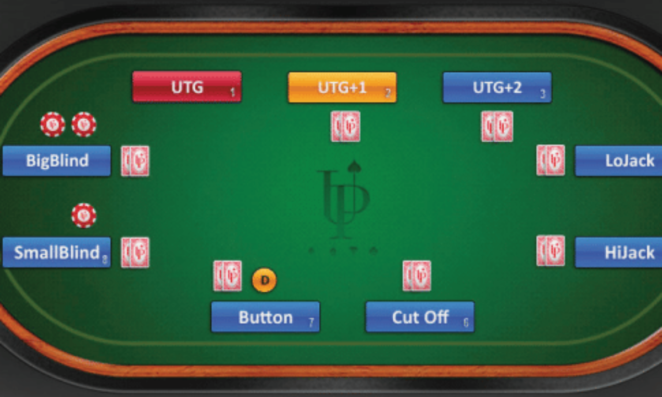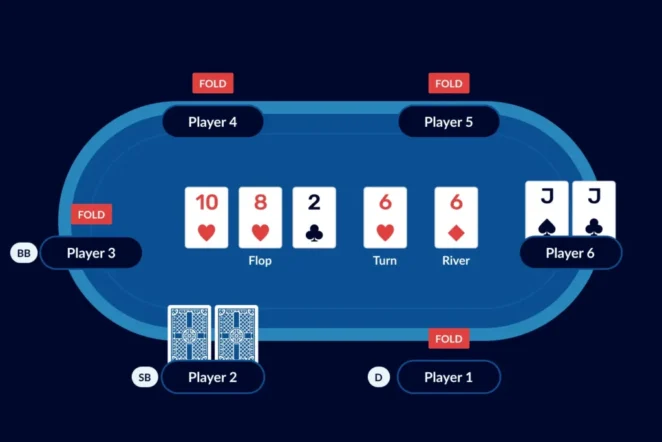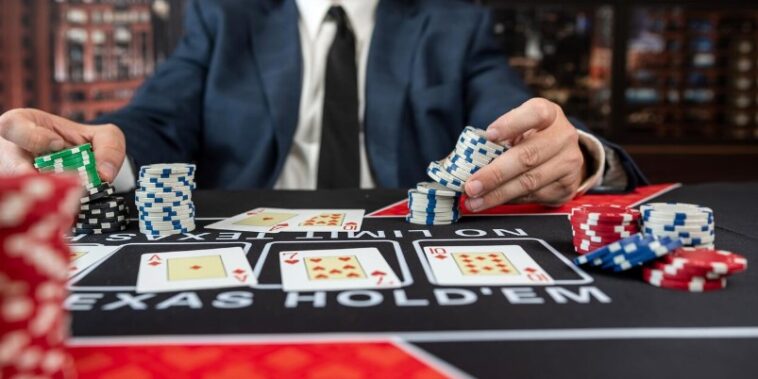Texas Hold’em is not just a card game. It’s a test of patience, perception, calculation, and pressure control. If you want to stop losing and start playing like someone who owns the table, this guide will show you how. Most people know the basic rules. Few know how to apply real strategy.
Key Highlights
- Winning consistently requires strict hand discipline, not just luck.
- Position at the table controls how much leverage you have in a round.
- Reading opponents often matters more than knowing the odds.
- Betting strategy must match your image and table dynamics.
- Mistakes compound in multi-way pots—avoid emotional reactions.
- You need more than skill to win—you need control over pressure.
Hand Selection Is Not Optional

Most players fail right here. They play too many hands. Every decision after that becomes harder. You want to start strong, not try to make something out of nothing.
The strongest starting hands in Texas Hold’em are pocket pairs (Aces, Kings, Queens), suited connectors, and high cards with potential. Weak hands like off-suit low cards put you in impossible spots after the flop.
Keep your early-game hands tight. Especially when out of position. It’s not just about which cards you play. It’s about which situations you choose to get involved in.
If you play garbage hands, expect garbage outcomes.
Position Wins More Than Cards

Your seat at the table decides how much information you have. Late position (like the dealer button or one seat before it) gives you a major advantage. You get to see what everyone else does before making your move. That is leverage.
Early position forces you to act without knowing what others plan. That leads to trouble unless you’re holding a premium hand.
Now, this brings us to where most casual players start slipping—betting with no plan, no read, and no structure. That’s where platforms like Royal x Casino come into play for serious practice. The platform offers a competitive atmosphere that replicates real high-stakes tension. You need games where the pressure is real. Royal x Casino delivers that experience with real-money games, poker rooms, and constant action across time zones. It’s not just a site—it’s a high-skill training ground.
Use position as your weapon. Watch before acting. Exploit predictable players who reveal too much too early.
Watch the Player, Not the Cards
Anyone can memorize pot odds. That won’t save you when the guy across from you starts slow-playing his trips or bluffing with air. You must observe behavior.
- Does he act fast or hesitate?
- Does his voice change when he bets?
- Does he always scratch his face when he misses the flop?
Patterns never lie. Players do.
Don’t just focus on your hand. Pay attention to everything else. Every decision made before you is a clue. If a guy always checks on strong hands, punish him when he finally bets. If someone always raises big when bluffing, trap him with a monster.
Poker is a game of psychology before it becomes math. Once you learn to watch faces and hands, you stop playing cards and start controlling the game.
Your Bet Size Tells a Story
Every bet you make gives off a signal. Most amateur players only know one size—huge. That screams insecurity.
Think of betting like dialogue. Sometimes you whisper. Sometimes you shout. And sometimes, you say nothing and let silence speak.
The most effective strategies involve:
- Small bets to extract value from weak players.
- Mid-sized bets to pressure uncertain hands.
- Large bets to isolate players or bluff out potential dangers.
Don’t always bet the same amount with strong hands. Mix it up. If every bet looks the same, good players will read you blind.
Learn to Fold Without Regret
Not every pot is yours. The sooner you accept that, the more chips you’ll keep. Great players fold constantly. They wait for the right moment. That’s why they win.
Here’s where ego kills most players. They think folding is weakness. It’s not. Folding is power.
You preserve your stack. You wait. You study. Then you strike when it matters.
Folding is how you live to fight the next hand.
Advanced Bluff Strategy

Bluffing works. But only if your story makes sense. You can’t bluff on a board that clearly hits everyone else. You can’t bluff when you’ve been caught three hands in a row.
Smart bluffs depend on:
- Board texture that suggests strength.
- Fold equity—opponents likely to lay down.
- Your own table image. If you’ve been tight, your bluff will scare them.
Don’t bluff just because you missed. Bluff when it looks like you didn’t.
A failed bluff hurts. A successful one builds a legend.
Trap Only When the Setup Is Perfect
Slow-playing monsters like a flopped full house only works if your opponent is aggressive. If you trap a passive player, he might never bet. You lose value.
Trapping means you have to sell the lie. You have to convince the other person you’re weak or unsure. That means checking in position. That means calling instead of raising. It takes guts. And it takes timing.
If the board is dangerous—flush or straight draws—don’t trap. Bet big. Protect your hand.
Manage Your Bankroll Like a Business
If you don’t respect your chips, you won’t keep them. Never sit down at a game with more than 5% of your total poker bankroll. You’ll go broke faster than you think.
Track your wins and losses. Know your hourly rate. Know when to walk away. Poker is a game of survival first, profit second.
Avoid chasing losses. Every hand is new. Every session resets your mind.
Adapt to Table Dynamics
No two tables are the same. Some tables are aggressive. Others are tight. Some are full of loose amateurs. Others feel like shark tanks.
You must adapt.
If everyone is tight, loosen up. Steal blinds. If everyone is aggressive, tighten up. Wait and punish.
Flexibility separates winners from formula players. Use your head, not a script.
Common Mistakes You Must Avoid
Let’s finish with some straight-up red flags. If you catch yourself doing any of these, stop.
- Playing too many hands just to “see a flop.”
- Calling big bets with mediocre draws.
- Letting tilt ruin your decisions.
- Forgetting to observe the table while not in a hand.
- Showing your cards after a fold or a win—information is power.
Poker rewards patience and punishes ego. The longer you survive, the more likely you are to thrive.
Final Advice – Play Smart or Don’t Play at All

Texas Hold’em is not a game for wishful thinkers. It’s a game of patterns, discipline, and strategy. If you play with emotion, you lose. If you rely on luck, you lose. If you enter without a plan, you lose.
But if you master hand selection, position, player reading, and table control—you win. Not just once. Over and over.
Use real platforms to sharpen your edge.
Play with purpose. Study your mistakes. Fold more often and bet smarter.
And when the moment comes—go all in with confidence.



